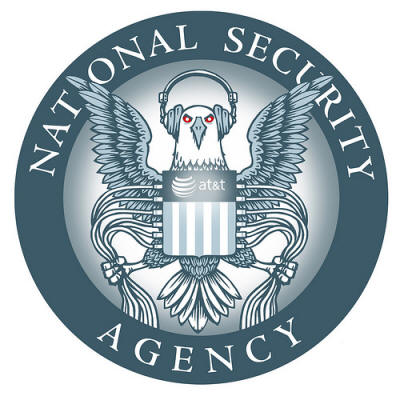
by Ms. Smith
July 15, 2012
from
NetWorkWorld Website
|
At the 'Hackers on Planet Earth' (HOPE)
conference, NSA whistleblower
William Binney revealed more about how
censorship and monitoring are alive and well in the USA. |

This weekend in New York City was a three-day hackers' conference called
HOPE Number 9 which is only held every two years; HOPE stands for
"Hackers on Planet Earth" and there's always a lot of great info that comes
out of it.
One of the quotes floating around in regard to #HOPE9 came from Founder and
CEO of Pallorium Inc's
Steven Rambam as,
"Rambam's first law: All databases will
eventually be used for unintended purposes."
This is the same man who spoke at the 2008 HOPE
about "Privacy is dead - Get over it."
In regard to this year, you will probably find
private investigator Rambam's newest revelations
coming soon to 2600.
Surveillance is one of those purposes that databases may be used for and
NSA
whistleblower William Binney knows plenty about domestic spying.
Binney was at HOPE and while his entire keynote is not yet posted,
journalist Geoff Shively and Livestreamer Tim Pool had an
opportunity to speak with Binney about NSA spying.
As you may recall, after
covering the NATO protests, Pool and Shively were two of the journalists
harassed by Chicago cops.
In the short (below) video interview, Binney explained a
bit more about the NSA spying on Americans:
"Domestically, they're pulling together all
the data about virtually every U.S. citizen in the country and
assembling that information, building communities that you have
relationships with, and knowledge about you; what your activities are;
what you're doing.
So the government is accumulating that kind
of information about every individual person and it's a very dangerous
process." He estimated that one telecom alone was sending the government
an "average of 320 million logs every day since 2001."
Censorship and monitoring are alive and well in
the USA. Shively summed it up as,
"It's not about being paranoid. It's not
about having nothing to hide; it's about an infringing of rights that
does exist" right here at home.
After the
NSA claimed it would violate
Americans' privacy to say how many of us it spied upon, Binney was one of
three NSA whistleblowers who decided to help back
the EFF's lawsuit over the
government's massive domestic spying program; they intend to tell the truth
about the NSA's warrantless wiretap powers.
If there is a dossier on almost every American,
then it's little wonder why the NSA doesn't want to release those numbers.
EFF Senior Staff Attorney Lee Tien
said,
"The government keeps making the same 'state
secrets' claims again and again. It's time for Americans to have their
day in court and for a judge to rule on the legality of this massive
surveillance."
NSA Chief General Keith Alexander
has
denied such intense spying on Americans in the past.
In a keynote speech about cybersecurity
legislation, Alexander said (below video - start at 7:10),
"the NSA neither needs nor wants most
personal info, such as emails," while continually repeating civil
liberties must be protected.
Yet as Techdirt
pointed out, Alexander's words
might be interpreted "to actually mean they don't care about civil
liberties."
According to Truthdig, Binney told the HOPE audience,
"These people are still hiding behind this
'national security' curtain. All I want to do is move that aside and say
'See... pay attention to that man behind the curtain, because he's
affecting us. He's affecting all of us' because he's setting the stage
for an 'Orwellian state'."
Also this weekend, The New York Times ran a
piece called "The End of Privacy?"
The editorial states,
"Cellphones, e-mail, and online social
networking have come to rule daily life, but Congress has done nothing
to update federal privacy laws to better protect digital communication.
That inattention carries a heavy price."
Meanwhile in America, the 'land of free,'
another NYTimes
article exposed how the Food and Drug Administration
(FDA) operated a,
"wide-ranging surveillance operation" and
spied on "a group of its own scientists" by secretly capturing
"thousands of e-mails that the disgruntled scientists sent privately to
members of Congress, lawyers, labor officials, journalists and even
President Obama."
The agency, using so-called spy software
designed to help employers monitor workers, captured screen images from the
government laptops of the five scientists as they were being used at work or
at home.
The software tracked their keystrokes,
intercepted their personal e-mails, copied the documents on their personal
thumb drives and even followed their messages line by line as they were
being drafted, the documents show.
This surveillance resulted in more than 80,000 pages of computer documents.
After reviewing them, The New York Times
wrote,
"The documents captured in the surveillance
effort - including confidential letters to at least a half-dozen
Congressional offices and oversight committees, drafts of legal filings
and grievances, and personal e-mails - were posted on a public Web site,
apparently by mistake, by a private document-handling contractor that
works for the F.D.A."
That accidental find of the database by a
scientist takes us back to Rambam's quote about databases being used for
"unintended purposes."
It also highlights the truth of Binney's claims
at HOPE that censorship and monitoring is alive and well in the USA.


